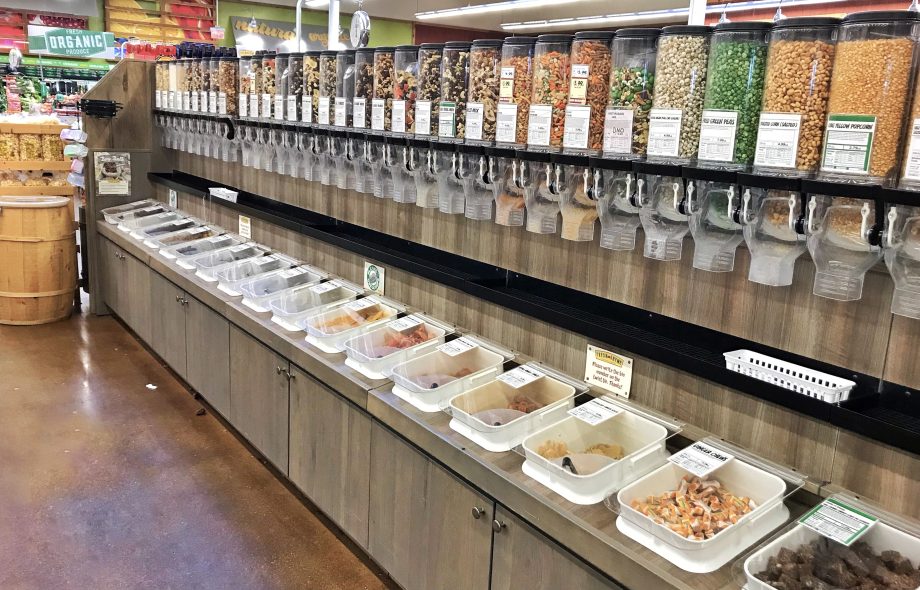If you’re running a food-based business—whether it’s a small café, a supermarket chain, or a fast-growing restaurant—you know the pressure. Supply needs to be consistent, prices have to make sense, and quality can’t be compromised. That’s exactly why the smartest B2B buyers today are ditching retail shelves and turning to vendors for their bulk food needs.
Let’s break down why this shift is happening—and why it might just be the smartest move for your business too.
The Shift in B2B Buying Behavior
Traditionally, retailers were the go-to for bulk food. But let’s face it, the retail model was never really built for B2B scale. In today’s fast-paced, cost-conscious world, B2B buyers are becoming more strategic. They’re not just purchasing—they’re partnering. And vendors, not retailers, are stepping up to meet that expectation.
Bulk Food: A Business Priority, Not a Grocery List
Retail stores cater to households. Vendors cater to businesses. That one difference changes everything.
When you’re sourcing flour, rice, spices, oils, or packaged goods for your business, you’re not just “shopping”—you’re building inventory for profits. Vendors understand this, and that’s why they think long-term, not transactionally.
Retailers vs Vendors: What’s the Real Difference?
Here’s where things get real. When you compare vendors and retailers on the key metrics that matter to your business—pricing, consistency, service, and scale—vendors win almost every time.
Pricing Power: Vendors Know the Numbers
Retailers have fixed margins and middlemen to pay. Vendors? They often are the source—or one degree away. That means better pricing, especially when buying in volume. Vendors can offer tiered pricing, volume discounts, and loyalty perks—things retailers simply don’t bother with.
Customization That Retailers Can’t Offer
Need gluten-free flour in 25 kg bags? Want customized packaging? Retailers usually have one size fits all. Vendors? They’ll tailor your order like a bespoke suit.
Direct Communication = Fewer Surprises
Ever had an order delayed or substituted without notice? That’s retail life. With vendors, communication lines are direct and clear. You can talk to a real person—someone who knows your needs and can solve problems fast.
Trust Is Built on Consistency and Supply
Ask any buyer what keeps them up at night. It’s not price—it’s supply disruption.
Vendors understand how critical consistency is for B2B buyers. They forecast demand with you, not just for you. Their warehouses and distribution systems are designed to ensure you never run out of your best-sellers.
Retailers restock when they can. Vendors plan to never let you down.
Why Wholesale Platforms Like Thokmandee Are Changing the Game
Platforms like Thokmandee are making vendor relationships easier and more accessible than ever. They bring together verified bulk food vendors under one digital roof, giving buyers the ability to browse, negotiate, and order—without even stepping out.
In short? B2B buying is finally catching up to the Amazon age, but with smarter pricing and better relationships.
Avoiding Retail Markups: The Real Money Saver
Markups. That’s the elephant in the room.
The Hidden Costs of Buying Retail
Retailers bake multiple margins into every product. You’re not just paying for the item—you’re paying for their shelf space, branding, packaging, staff, and more.
With vendors, you’re often one step from the source. That’s a leaner supply chain and a fatter margin for your business.
Vendor Relationships Mean Smarter Forecasting
Imagine being able to call your vendor and ask, “What’s the outlook on basmati rice prices next month?” Retailers can’t answer that. Vendors can.
They work upstream with suppliers and distributors and often know what’s coming down the line. That kind of insight helps you plan, budget, and stock more strategically.
In business, foresight is just as valuable as hindsight.
Conclusion: Vendors Win the Bulk Battle
If you’re still buying bulk food from retailers, you’re probably leaving money—and control—on the table.
Smart B2B buyers get this. They know that vendors offer better pricing, more customization, consistent supply, and direct relationships that retail stores simply can’t compete with. Platforms like Thokmandee are making this even easier by connecting buyers to trusted vendors, all in one place.
So, the question isn’t should you shift to vendors—it’s why haven’t you already?
FAQs
Q1: What is the biggest advantage of buying from vendors over retailers?
A: The biggest advantage is cost-efficiency. Vendors offer better pricing, especially for bulk purchases, along with reliable supply chains and customization options.
Q2: Can small businesses also benefit from vendor relationships?
A: Absolutely. Vendors often scale their offers based on the buyer’s size. Small businesses can negotiate better deals and build lasting supply relationships.
Q3: Are vendor minimum order quantities too high for startups?
A: Not always. Many vendors offer flexible MOQs, especially when working through wholesale platforms like Thokmandee that cater to diverse business sizes.
Q4: Is the quality from vendors better than retail?
A: In most cases, yes. Vendors typically source directly from manufacturers or producers, which means fewer handling stages and fresher products.
Q5: How do I find reliable food vendors?
A: Start with curated platforms like Thokmandee, which lists verified vendors with ratings and transparent terms.
 :
https://se.pinterest.com/thokmandee/
:
https://se.pinterest.com/thokmandee/












